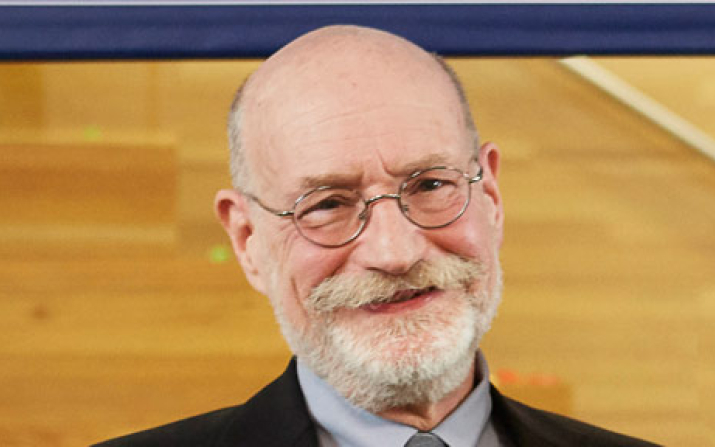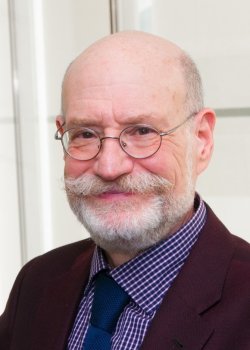After graduating from Case Institute of Technology in 1969 with a BS in electrical engineering, Larry Sears (CIT ‘69) founded Hexagram Inc., a business-to-business company that developed and manufactured a range of electronic systems and controls for a variety of customers. After 35 years in industry, Sears sold that company and returned to Case Western Reserve University as an adjunct faculty member, where he shares his expertise in engineering, experience in industry and passion for tinkering.
“This sounds corny, but ‘Larry Lab’ changed my life,” said a former student about the impact of the Electrical, Computer and Systems Engineering 371: Applied Circuit Design course taught by Larry Sears.
For those who haven’t taken the course, “Larry Lab” is the result of combining engineering theory, practical applications and a teacher who loves what he does.
Students have described his course as “legendary,” so it’s clear to see why one of them nominated Sears for the 2020 Carl F. Wittke Award for Excellence in Undergraduate Teaching. Sears will receive the award during commencement ceremonies on Sunday, May 17.
Bringing real-world experience to the classroom
Students see Sears’ experience in industry as an asset, particularly in the way it has shaped his approach to teaching. His course is focused on applying theory to real-world projects and encouraging students to find what really works, because as Sears will tell you: “Actual performance is always going to be different from simulations and calculations; as in life, things rarely go according to expectations.”
Sears’ project-based approach to learning includes challenging students to a new project every week, with each project presenting different topics in analog, mixed-signal, and power electronics. Students are challenged to meet functional and quantitative requirements for each project, but are not provided guidelines on how to meet those specifications; students say this fosters independent thinking and creativity. The goal is to shape students into skilled, professional, and productive engineers who can design efficient, cost-effective, and reliable products.
According to Sears, even failures provide learning opportunities, because “it’s probably more important to learn how to not design something as it is to learn how to design something.”
Pedram Mohseni, the Leonard Case Jr. Professor of Engineering and interim chair of the Department of Electrical, Systems and Computer Engineering, describes Sears’ course as enriching to the department, and “one of the most challenging, but also most rewarding, courses in our electrical engineering curriculum, teaching applied circuit design to our students using real-world examples and through hands-on, experiential learning.”
Sears’ favorite part of teaching students is that lightbulb moment when you can see a student “get it.” One of the first projects the students take on is building a function generator, a complex laboratory instrument with multiple components.
“You just see the pride in these kids when they make something this complicated after just a couple weeks of the course,” he said. “That’s always a real milestone.”
Lessons that last
According to his students, “Larry Lab” provides students with the background, experience and confidence they need to enter the workforce.
“The course structure is basically an interview every week,” said the student who nominated Sears for this award. “Larry takes the time to ‘interview’ every group on their circuit design, their conceptual understanding, and most importantly, their rationale for design decisions. The course quickly sharpens your technical and soft skills. To succeed in both his class and industry, you must know the technical details and be able to communicate it too.”
When asked what he thought about receiving the Wittke recognition, Sears shared that he’s “pleased and proud.”
“I really think it’s neat,” he said. “I’ve always thought that the students take to the course very well, but to have a recognition like this that’s unique and tangible—that’s very rewarding.”
About the award
Created in 1964, the Wittke Award is named for Carl Frederick Wittke, who, from 1948 to 1963, was professor of history, chair of the Department of History and vice president of Western Reserve University. Faculty members who teach undergraduates are eligible. Undergraduates nominate candidates; a committee of students interviews nominated faculty members and recommends winners. Two faculty members receive the award each year.
(From The Daily, 5/8/2020)


